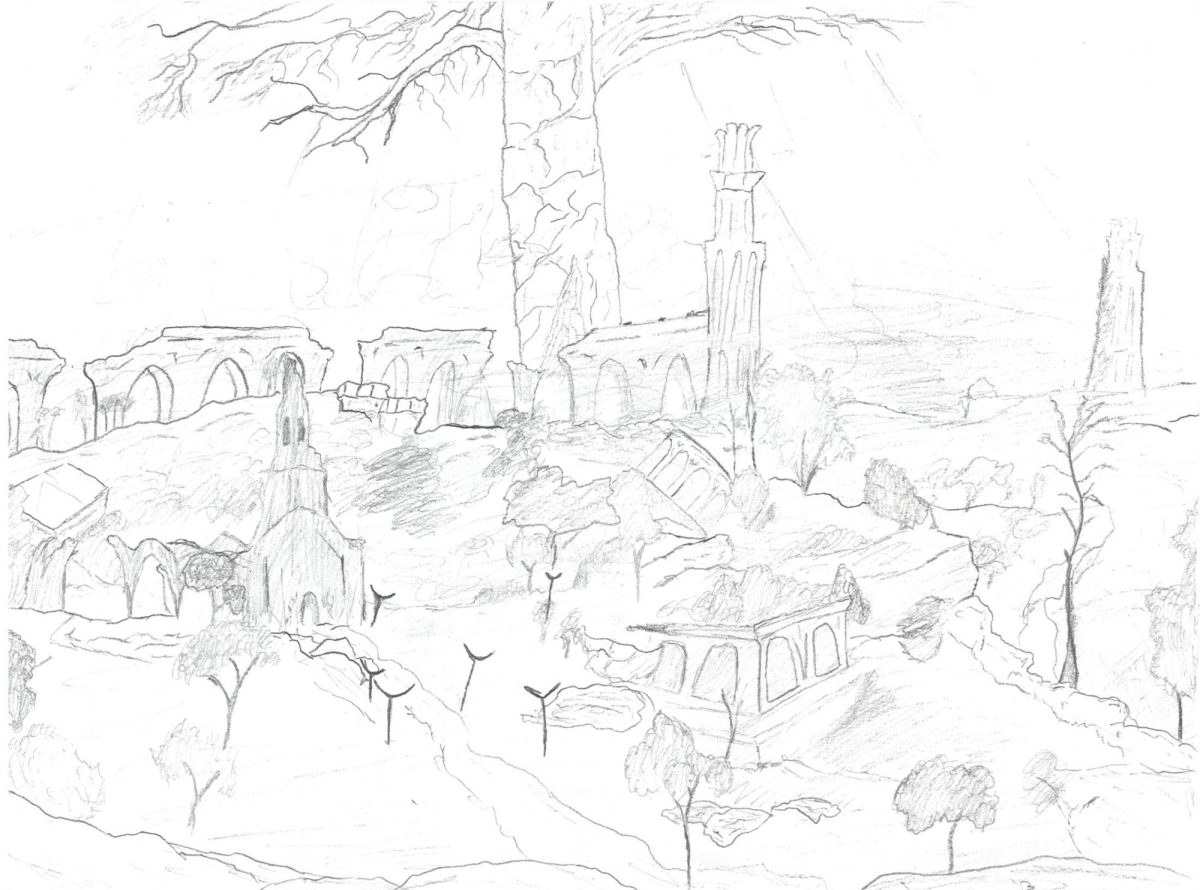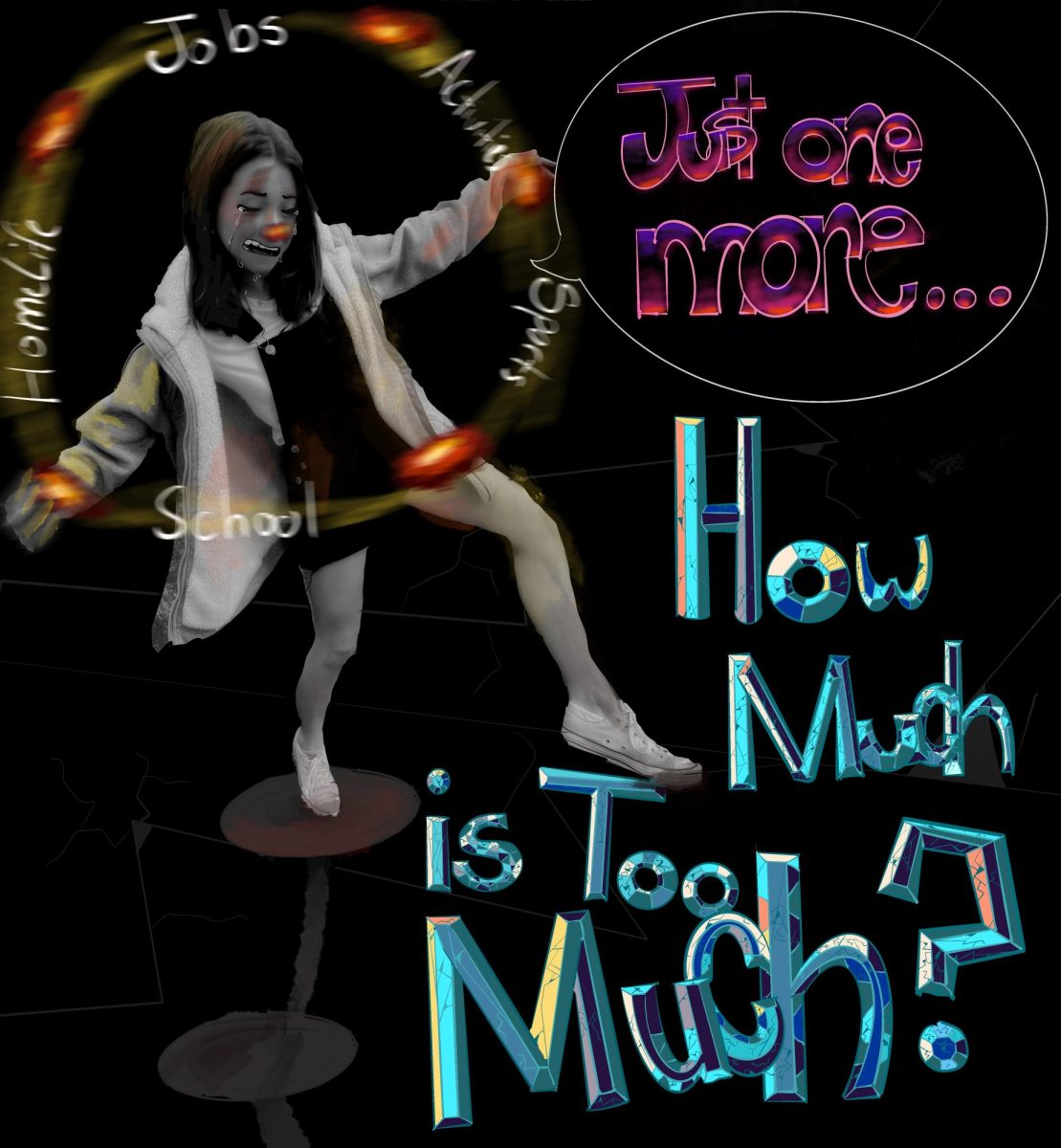If glowing candles, broken mirrors and ominous misty mornings are your vibe, then Paris Paloma’s new album “Cacophony” is right for you.
Born in Derbyshire, England, Paloma began songwriting at age 14. She released her first song, a single, titled “Narcissus” on Sept. 24, 2020. She released a total of 13 singles and one extended play (EP) titled “cemeteries and socials” between the years of 2020 and 2023.
Despite her releases, Paloma went fairly unnoticed until posting a video with a clip of a new song titled “labour” which would be released in its entirety on March 24, 2023. The track’s blunt lyrics and rhythmic tone captivated a community primarily made of women and Lesbian, Gay, Bi, Trans and Queer (LGBTQ+) members.
The English singer/songwriter blends folk, dark pop and indie to produce music that sounds downright ethereal. Her combination of chords and allusions gives her music qualities similar to alternative and folk bands like Florence + The Machine, The Crane Wives and Hozier.
Paloma announced her “Cacophony” North American Tour on Sept. 23, nearly a month after releasing her debut album with the same namesake on Aug. 30. The tour will take place in March 2025, with Paloma performing 15 shows across Canada and the United States.
According to the Instagram post announcing the tour, members of Paloma’s mailing list and Discord were given access to a presale link the following day, Sept. 23. General ticket sales opened at the end of the work week on Sept. 27 at 10:00 a.m. local time.
My thoughts?
“Cacophony” is a hauntingly beautiful, obsessively accurate curation of 15 songs. The album’s vinyl release self-describes Paloma’s music as “speaking to the female experience, grief, love, death, and power.”
“Cacophony” captures the voice of modern feminism. Paloma creates music that speaks to womanhood in a way other artists do not, drawing from her life to capture themes ranging from isolation to power and love to loss. Her music, bursting with references to Greek mythology and history, brings a voice to the woman’s experience as she pushes issues of harmful generational cycles of abuse and misogyny. In doing so, she bridges ancient tales with her own experiences, telling modern stories in a far-from-modern way.
Top Three Songs
1. “labour”
Starting with her most widely known song, “labour” has become something of a feminist anthem. Paloma’s soft voice and combination of instruments give the song an old-fashioned feel, something she does frequently throughout the album. The song crescendoes, turning the words of a tired narrator into a frustrated chanting. As it ends, Paloma’s thoughts are firm statements rather than the silent protests they once were.
Favorite Lyric: “The capillaries in my eyes are bursting/ If our love died, would that be the worst thing?”
2. “boys, bugs and men”
Another popular track on the album, “boys, bugs and men” touches heavily on cycles of mistreatment. The hollow beat and guitar give the song an antique, nostalgic quality. The song poses a question for those who can relate to Paloma’s situation: If she doesn’t speak up about her mistreatment, does she have the right to feel it? Does she have the right to be affected by this pain if she deems herself “not strong enough” to escape it? The song ends with Paloma reclaiming her power, as most others do as well.
Favorite lyric: “At the cutting of your tongue, all I hear is shredding wings/ Before me is a man who cares not for little things”
3. “knitting song”
A tribute to knitting, as the title suggest, this song is about the connection of women across generations. The song’s warm acoustic guitar and soft singing give it a sense of comfort, the opposite of the isolation often conveyed in the album. Paloma describes how knitting has connected her not only to important role models in her childhood but also to her friends in early adulthood. She ties the themes of connection and knitting together, emphasizing how the woolwork relates to the experience of womanhood.
Favorite lyric: “Let us sit so quietly/ In firelight, I hope you’d die for me”




![April marks the 25th anniversary of Sexual Assault Awareness Month, created by the National Sexual Violence Resource Center (NSVRC). This month is to spread awareness of the harassment, assault and abuse that happens around the world. The symbol that represented the month was a teal ribbon; however, some survivors of assault create different symbols and movements like the TikTok trend in 2022, where survivors would tattoo Medusa on their body, in honor of her backstory in Greek Mythology. “I don't think [this month is known] at all. I rarely see anybody talk about it. I rarely see much of an emphasis on posting it online, or much discussion about it, and I feel like there needs to be way more discussion,” an anonymous source said. “I think just validating every experience that a person has gone through, regardless of the degree of it, the severity, is an essential step into making sure that people are aware that this is a very real problem in a society and that we need to do better in addressing it.”](https://rockmediaonline.org/wp-content/uploads/2025/04/IMG_0011-1200x900.jpg)
![Lesbian Visibility Day is April 26, and it’s a holiday to celebrate the lesbian community of the world. Lesbian Visibility day was established in 2008 by many queer activists and organizations who sought to raise more awareness for lesbian history and culture. “So this is why during Lesbian Visibility [Day] we celebrate and center all lesbians, both cis and trans, while also showing solidarity with all LGBTQ+ women and nonbinary people,” Linda Reily, in an article written by her, said.](https://rockmediaonline.org/wp-content/uploads/2025/04/Lesbian-Visibility-day.jpeg)


